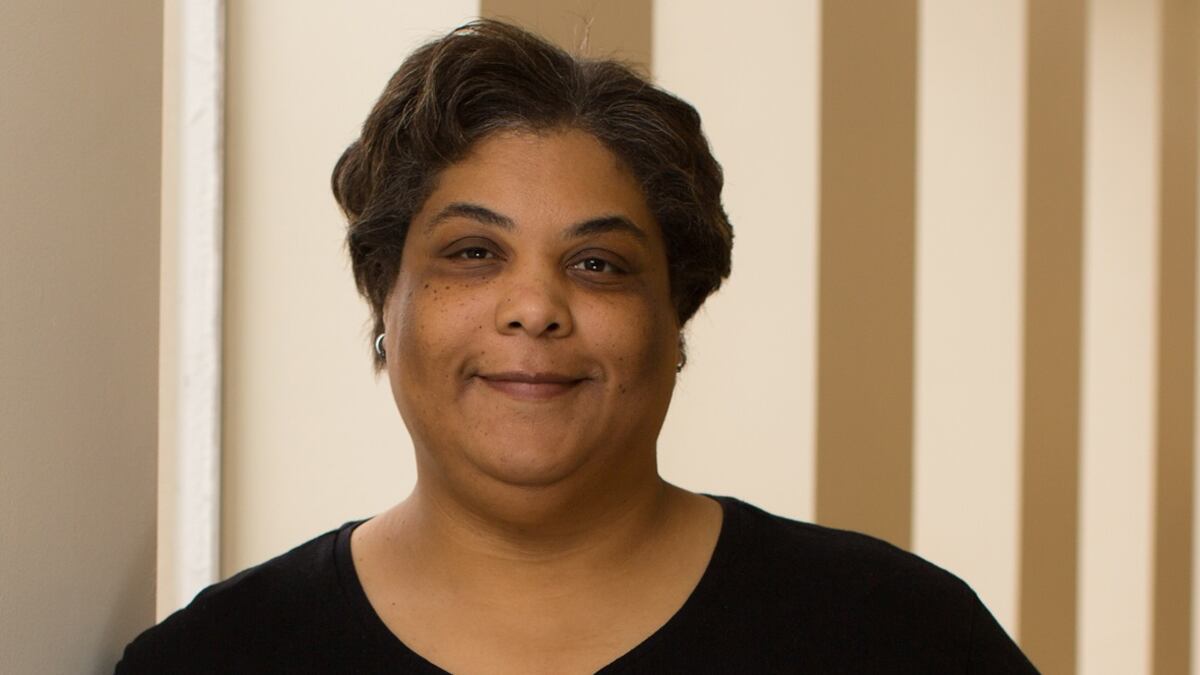BY EMILY COIT
Six months after pulling a forthcoming book from Simon & Schuster because of the publisher's relationship with Milo Yiannopoulos, Roxane Gay returns with Hunger: A Memoir of (My) Body (Harper Collins, 304 pages, $25.99).
Hunger is many things: a brave, if at times self-defensive, portrayal of life as a morbidly obese woman; an exploration of the repercussions of rape; a criticism of American society's obsession with thinness. But most of all, Hunger is a resonating depiction of Gay's struggle to claim ownership of her own body.
For Gay, this journey began at age 12 when she was raped by a classmate and a group of his friends. Throughout the book, Gay refers to her life in two parts: "before" and "after." In the "before," Gay is a normal, if awkward, preteen girl from a loving family. In the "after" the reader watches Gay collapse into a traumatized shell of her former self. The rape, Gay recounts, left a void inside her, and she used food to fill that void. Informed by cultural norms, Gay understood that obese women were unattractive, so she ate in excess to ensure she would never again be brutalized. At her heaviest, Roxane Gay weighed 577 lbs.
In the beginning of the book, Gay calls Hunger the "most difficult writing experience of [my] life." Unfortunately, at times her struggle to understand her experience is all too apparent. Gay falls into a pattern of instructing the reader on what she wants them to take away from the book instead of simply telling her story.
As the book progresses these moments fall away, and once Gay finds her voice, the result is extraordinary. The contradiction of Gay's experience weaves through her narrative: She built a new body to protect herself and regain some semblance of control, but in doing so she lost even more of who she was. This tension is echoed by her storytelling. Phrases like "I don't know why I turned to food, or do I?" pepper the book, highlighting Gay's struggle to understand the journey to own her body.
Throughout the book, Gay recounts her story again and again, each time unveiling another layer of loss, pain and confusion. With each recollection, she teeters on the brink of acceptance but never reaches it. Her repetition and the book's lack of decisive conclusion brilliantly mirror the ceaseless burden of trauma.
In its own way, Hunger is the plea that centuries of women have made before. It is a plea to be seen. To be heard. To be understood. To be appreciated.
It is Gay's personal call for what so many women want: to have her worth as a human being judged on the depth of her contribution, her kindness and her character. To have her body be her own, regardless of its size. In that way, the book, like its namesake, is unshakable.
Roxane Gay will read at Powell's City of Books, 1005 W Burnside St., powells.com, on Friday, June 30. 7:30 pm. Free.
